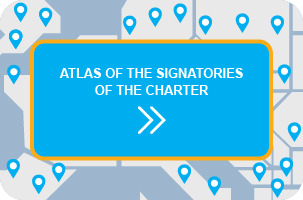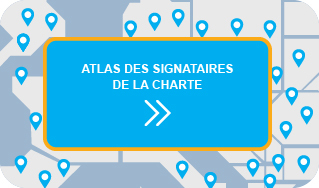GAP III – What opportunities for local government and decentralised cooperation?
On 25 November, the EEAS and Directorate General for Development (DEVCO) launched the new EU Gender Action Plan – An ambitious agenda for gender equality and women’s empowerment in EU external action (GAP III) during the #GenderEqualWorld high-level conference.
Five pillars, a three-pronged approach
GAP III is organised around 5 pillars that will be pursued with a three-pronged approach that combines gender mainstreaming, targeted actions and political dialogue.
- Making gender equality and women’s and girls’ empowerment a cross-cutting priority of EU external action. By 2025, 85% of new EU actions should contribute to achieving this objective, with more actions including it as a main objective
- Working together with EU Member States as Team Europe at multilateral, regional and country level, and fostering partnership with stakeholders, CSO, women’s organisations
- Accelerating progress by focusing on key areas of engagement:
-
- Ending gender-based violence
- Sexual and reproductive health and rights
- Economic and social rights and empowerment
- Equal participation and leadership
- Women, peace and security
- Green and digital transformations
- Leading by example, by striving for a gender-responsive and balanced leadership, more capacity and expertise and a reinforced network of gender focal points
- Putting the focus on results, accountability and transparency through qualitative, quantitative and inclusive monitoring.
GAP III has been developed with the aim to ensure internal-external policy coherence with the EU Gender Equality Strategy 2020-2025 and is complementary to the LGBTIQ equality strategy[1] adopted by the Commission on 12 November 2020; taken together, these strategies and action plans provide a roadmap for the EU’s contribution to the achievement of the goals outlined in the Beijing Platform for Action and the 2030 Agenda (SDG5) – with the aim of a gender-equal world where “All people, in all their diversity, should be free to live their chosen life, thrive socially and economically, participate and take a lead as equals.”
The key areas of engagement in the 3rd pillar build on those of GAP II and are well-aligned with the priorities of CEMR/PLATFORMA’s network of LRGs and LRGAs.
Areas of interest and opportunities for local and regional governments
In the design of external EU-funded programmes, GAP III outlines three minimum standards will be applied in order to reach the target of 85% of EU actions contributing to gender equality and women’s and girls’ empowerment:
- conducting and using updated gender analyses to inform decision-making on future action and integrating these into all relevant dialogues, policies, strategies, programmes and operations;
- applying gender-sensitive and sex-disaggregated indicators and statistics to monitoring and evaluation;
- giving robust reasons, based on the findings of the gender analysis, to substantiate any action deemed not to contribute to gender equality.
The action plan also highlights the importance of working in a “context-sensitive” manner, which will require “strong partnerships and dialogue with local actors, civil society and local communities…”
Multi-level and multilateral cooperation forms the basis of the second pillar of the strategy and calls for the EU to “maintain regular dialogue on the implementation of GAP III and work in cooperation with a broad range of actors, such as local authorities and civil society organisations, women’s rights activists, human rights defenders, young people, religious and faith-based organisations.”
Local and regional governments, along with their representative associations, through their contacts with national governments and EU delegations in partner countries, should aim to influence the development of ‘country-level implementation plans’ to ensure that they are involved from the earliest stages and can assist in setting policy priorities and identifying actions and key objectives for the key areas of engagement.
Further, the key areas of engagement cover areas where the local level of government has particular competences, and can effectively contribute:
- Ending gender-based violence
- EU-UN Spotlight Initiative: improving laws and policies, institutional capacity building, the quality of essential services delivery, data management and women’s movements empowerment, as well as challenging harmful social norms and stereotypes.
- Promoting prevention – by challenging harmful gender norms, working with all relevant stakeholders to ensure a victim-centred approach and measures that end recidivism by perpetrators…
- Supporting access to psycho-social support services and participation in economic and social life of victims of gender-based violence and victims of trafficking in human beings;
- Sexual and reproductive health and rights
-
- Promoting universal health coverage through sustainable and resilient health systems and equitable access to essential services and information, including sexual and reproductive health, maternal care and capacity to address communicable and noncommunicable diseases, with a particular attention to women and girls with disabilities;
- Economic and social rights and empowerment
-
- Social and economic rights: “women and men should equally share care responsibilities and have access to adequate social protection, public services, and financial and business opportunities.”
- Women and girls also need to have access to enabling conditions, such as access to safe, affordable and accessible public transport and other mobility options, both in rural and urban
- Supporting and empowering migrant women contribute to the sustainable development of countries of origin, transit and destination through remittances, skills and knowledge;
- Equal participation and leadership
-
- Increasing the level of women participation, representation and leadership in politics, governance and electoral processes at all levels, via support for democracy and governance programmes and public administration reforms;
- Women, peace and security
-
- Supporting and conducting capacity-building and mentoring on women’s leadership, for women negotiators and mediators, to improve their effectiveness and the quality of their participation in peace processes;
- Green and digital transformations
-
- Improving access of girls and women to affordable, accessible, safe and secure digital connectivity, reaching out to the rural and remote areas;
- Supporting the provision of public and private services through gender-responsive digital channels, technologies and services (e.g. e-government, digital financial services) that will enhance women and girls’ inclusion and participation in the society.
Synergies with other strategies and instruments
At the #GendeEqualWorld launch event, MEP Chrysoula Zacharopoulou (Renew, FR), the rapporteur for the DEVE Commmittee report on “A new EU-Africa Strategy – a partnership for sustainable and inclusive development”, highlighted that GAP III will be “a precious tool” for the success of the new EU-Africa strategy. In terms of EU-AU partnership, GAP III proposes:
- The EU should support African Union targeted initiatives, such as the African Union strategy for gender equality and women’s empowerment (2018-2028) and the new decade of African women’s financial and economic inclusion (2020-2030).
- Mainstreaming gender equality in all work strands of the Africa-EU Partnership;
- In the broader context of urban development, business opportunities for women and participation will be promoted through cooperation between EU and African cities under the 100 Intelligent Cities Challenge Initiative.
The most relevant funding instruments for the implementation of the ambitious goal of having 85% of new EU actions by 2025 contributing to achieving gender equality and the empowerment of girls and women (principal or partial focus), include: Neighbourhood, Development and International Cooperation Instrument (NDICI), Instrument for Pre-Accession Assistance (IPA) and Asylum and Migration Fund (AMF). Adequate funding to match this goal, including specific resources for local and regional actions, will be necessary to translate this stated objective into impactful results on the ground.
What to expect from CEMR and PLATFORMA going forward
The contributions of local and regional governments are crucial for socially, economically and ecologically sustainable development. In their democratic functions, as service providers and employers they pivotal to achieving all of the global agendas, including the 2030 Agenda and the Beijing Platform for Action. LRGs, together with civil society organisations, foster a bottom-up approach to projects as actors who are familiar with the specific needs of their population from a gender perspective.
Our original message from the consultation phase in the preparation of GAP III bears repeating: Gender Equality & women’s empowerment in #EU external relations cannot happen without local governments & regions!
Going forward, as the relevant committees of the European Parliament draft their reports on the new strategy, CEMR and PLATFORMA will advocate for further, specific, recognition of the critical role LRGs play as partners in design and implementation of actions at country level. We wish to see the European Parliament strongly encourage Member States and EU delegations to consider LRGs as key development policy actors in their own right and systematically include them at all stages.
Marlène Siméon, Director of PLATFORMA reflected on the new strategy: “It comes at a good moment, where we can design our network’s activities for the next programming period in a way that capitalises on the valuable contributions decentralised cooperation and local action can make to gender equality. PLATFORMA and its partners will do their part and continue to create spaces for peer-to-peer learning on women’s access to public spaces, participative and gender sensitive municipal budgeting, engagement of women and youth in local politics, promotion of women’s local entrepreneurship, and many more areas. Networking and exchange of best practice examples and experience between the municipalities, cities and regions of the EU and partner countries are crucial to improve local and regional policies, and better deliver public services on the ground.”
Additional resources
- Accompanying document Objectives and Indicators to frame the implementation of the Gender Action Plan III (2021-25)
- Factsheet
[1] LGBTIQ equality around the world: In various parts of the world, LGBTIQ people experience serious rights violations and abuses. The Commission will support actions for LGBTIQ equality under the neighbourhood, development and international cooperation instrument (NDICI), the Instrument for Pre-accession Assistance (IPA) and the Asylum and Migration Fund. (https://ec.europa.eu/commission/presscorner/detail/en/ip_20_2068)















